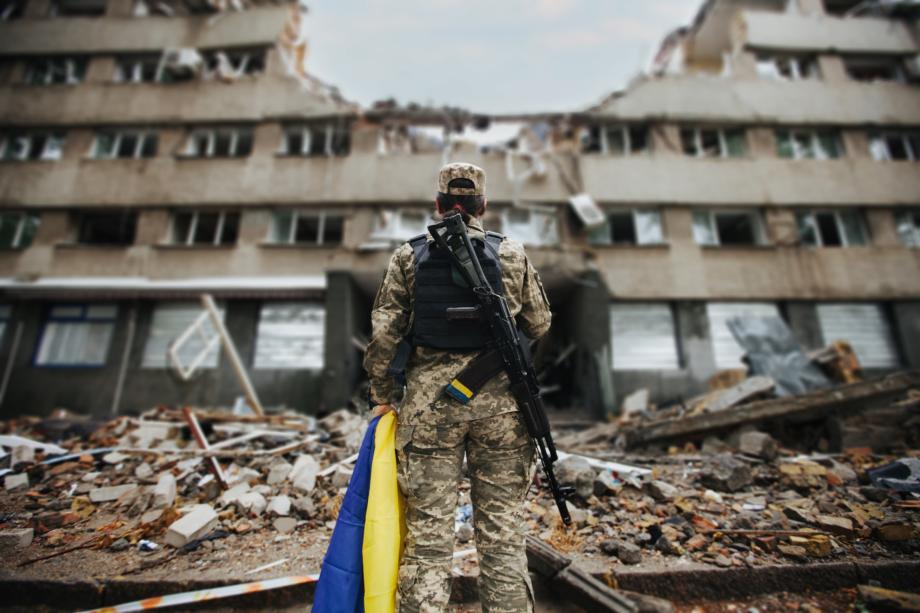SCARS ON THEIR SOULS: PTSD and Veterans of Ukraine

Kyiv, 7 September 2023: Ukraine has already become the nation with the highest number of people who have lost limbs during a war. The war experience will also expose the country's entire population to different war-related psychological traumas, which will need to be dealt with systematically to retain the quality of the human capital in the country, a new GLOBSEC report on post-traumatic stress disorder (PTSD) in Ukraine states.
"Since February 24 last year, there have been 25401 air alerts in Ukraine and they lasted for 1819 days, or 43 670 hours. In Kyiv alone, there have been 870 alarms since 24 February that lasted for 40 days, or 966 hours. This is only about the general population of Ukraine and does not give special consideration to the particularly traumatic experience of those living under Russian occupation, captured, tortured, deported, etc. Ukraine's Ministry of Health is already predicting that some 15 million will require different kinds of psychological support to balance their fragile emotional state, and around 3-4 million people will need medication to manage mental health problems resulting from the war. All of these figures show the pressing importance of having a strategy that will mitigate risks of Ukraine's population developing dire psychological conditions," commented Iuliia Osmolovska, Director of the GLOBSEC Kyiv Office and project lead of the team of international experts who worked on the Report.
Since the outbreak of armed hostilities in Eastern Ukraine in 2014, the issue of PTSD and other war-related traumas among combat veterans and civilians who were within or close to the zones of combat actions started to gain more attention. About 80% of the military involved in combat operations in Eastern Ukraine during the Anti-Terrorist Operation (ATO) and later in the Joint Forces Operation (JFO) found themselves in a state of combat stress, which later transformed into about 25% suffering post-traumatic stress disorders of varying severity. Approximately 20-30% of military personnel who received psychological traumas during combat actions could not solve their psychological disbalance without external assistance. Nevertheless, the issue of PTSD in Ukraine was not adequately addressed before February 2022.
"One of the greatest challenges for Ukraine is the gap between the identified, evolving needs and the current level of psychosocial resources available. To meet the needs of such scale and intensity among combatants and the wider war-affected population, a holistic, practical, inclusive, and different approach to psychosocial support and mental health is required. The new comprehensive report summarising readiness to deal with PTSD in Ukraine is the first step in setting up a much-needed strategy," Osmolovska said.
"Furthermore, against a background of significant financial support provided to Ukraine by its international partners to strengthen the resilience of a war-torn country, assistance for health care, mental well-being and war trauma treatment, as well as support to veteran policies remains strikingly small. It seems reasonable to consider using more EU and NATO financial instruments to work in the area. By publishing our report, co-authored by international experts from the USA, the UK, Israel, Croatia, Bosnia and Herzegovina, and Ukraine, we want to shine a light on this topic and get the international community more involved in making Ukrainian society more resilient and capable of coping effectively with psychological traumas of the war in early stages, where timely treatment will be more effective," Osmolovska added.